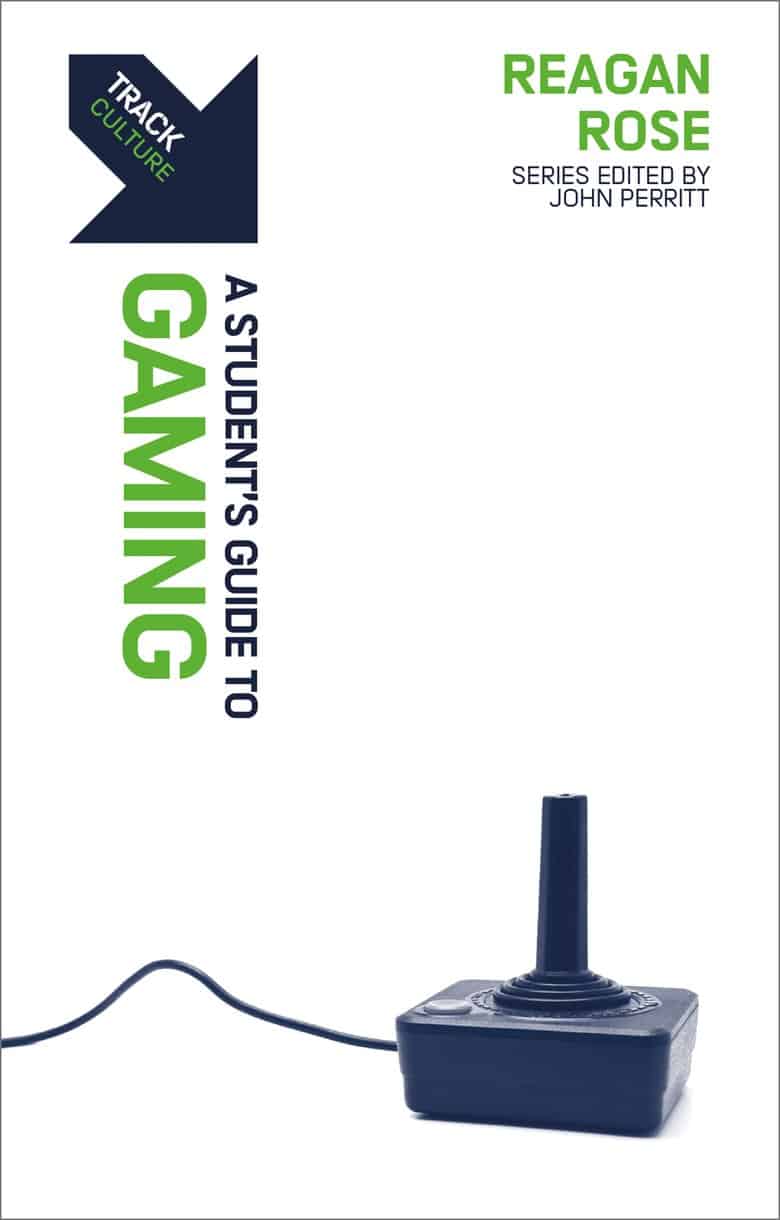A Student’s Guide to Gaming

I’m not a gamer. But I understand the attraction: today’s games are meant to get you hooked. I talk to enough gamers to know that it’s not hard to spend hours gaming. Add the social element of multiplayer games and you have a compelling draw. The video game industry is now worth more than the Hollywood film industry.
Gaming is a discipleship issue, and yet many of us don’t know how to address it.

In his book Track: Gaming: A Student’s Guide to Gaming, Reagan Rose describes some possible responses to gaming:
- Unbiblical legalism, which condemns all gaming
- Uncritical praise, which focuses only on the good in gaming
- Unthinking apathy, which ignores the issue altogether
- Unapologetic discernment, which turns to Scripture, exercises discernment, asking God to show us what would most honor him
Rose, of course, advocates for the last approach. He’s written this short book, just a hundred pages, for students and others who want to think through the issue of gaming through the lens of how to honor God.
I like a lot of things about this book.
First, it’s short. Rose says everything that he needs to say with little filler. It feels like this book would be easy to give to someone, even a non-reader, who wants to wrestle through this issue without being overwhelmed.
Second, it’s nuanced. Rose doesn’t give easy answers to complicated questions. If you’re looking at a book that condemns gaming altogether, then skip this book. Rose acknowledges the good in games. He deals carefully with each issue. His approachdoesn’t shame. He helps the reader think through issues rather than simply prescribing the right answer.
Third, it’s theological and yet accessible. My favorite kind of book is one that applies theology, with clarity, to life. Rose does that with this book. He writes about the gospel, idolatry, and Christian liberty. He unpacks what it means to be humans made in the image of God, and how gaming attempts to satisfy our longings for dominion, fellowship, and reward. Each chapter concludes with a summary of the main point, along with reflection questions.
Finally, it’s practical. The book ends with a game plan for gaming, along with some practical steps the reader can take to apply the lessons of the book.
I’ve come to appreciate the author’s ministry. Rose is able to think about issues clearly and apply the truth of Scripture, and this book is no exception.
We can’t afford to ignore this issue, nor can we afford to respond with either legalism or license. We need to think through gaming as a discipleship issue, and be prepared to think well about it and to help our brothers and sisters who are gamers. For that reason, every pastor and parent could benefit from reading this book, along with the intended audience (students who are gamers).
“Christians must consider video games in light of the mission God has given us here on earth,” writes Rose. Indeed. This book helps us do this. It’s worth reading and sharing as we think about how to do this.
More from Amazon.com






